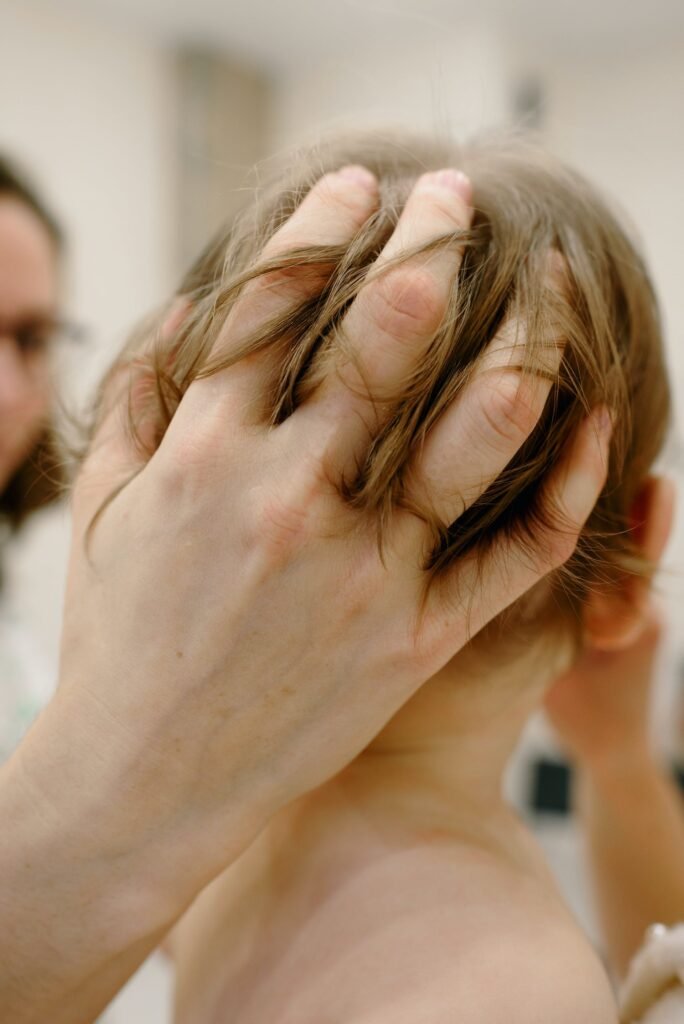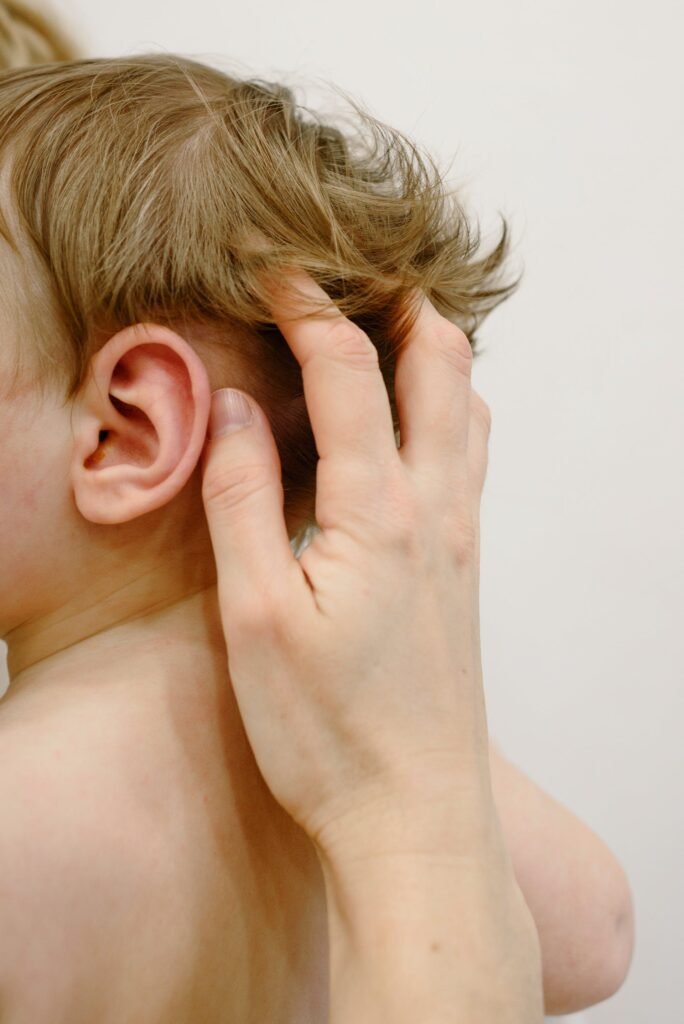Have you ever wondered if our genes have anything to do with hair loss in children? Let’s answer this question . We’ll look at how genes might be linked to male pattern baldness and hair loss in kids.
Understanding Male Pattern Baldness:

Male pattern baldness, also known as androgenetic alopecia, is something that often happens to men as they get older. It’s when hair gradually becomes thinner, especially around the temples and crown of the head. This tendency to lose hair can be passed down from both parents, which is something we find interesting when thinking about hair loss in children.
The Role of Genes in Kids’ Hair Loss:

Usually, we think of male pattern baldness happening when people are older, but there’s evidence that genes could play a part in hair loss for kids too. Children might lose hair for various reasons, like inheriting certain conditions, going through hormonal changes, or having health issues from their parents.
Genes from Our Family:
A crucial thing to think about is the history of hair loss in our families. If a child’s mom, dad, or close relatives had early hair loss, it could mean that the child has inherited something that makes hair fall out earlier. This happens because certain genes get passed down that affect how sensitive hair follicles are to hormones, possibly leading to hair loss when they’re still young.
Early Signs and Getting Help:

It’s important for parents to notice early signs of hair loss in their children. Keep an eye out for changes in how thick the hair is, unusual patterns of hair getting thinner, or the hairline moving back. If parents have concerns, talking to a doctor or a skin specialist (dermatologist) can help figure out if genes are playing a role and what steps to take.
Preventing and Treating Hair Loss:

Even if genes are part of why hair might fall out, there are things we can do to help. Eating a healthy diet, taking good care of our hair, and making some lifestyle changes can all contribute to keeping hair healthy. In cases where genes are a big factor, doctors might suggest personalized plans, like using special creams or medicines, to help keep hair loss under control.




